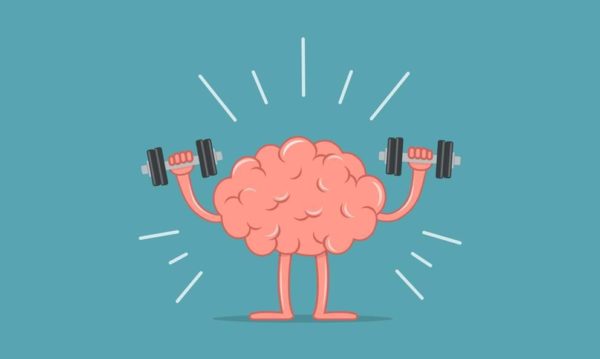In a world filled with endless information on parenting styles and strategies, the key to raising healthy children often feels elusive. From navigating picky eating habits to balancing screen time, the journey to nurturing well-rounded little ones can seem like a complex puzzle. However, by incorporating simple but effective practices into your daily routine, you can set the stage for your children to thrive physically, mentally, and emotionally. Let’s explore some tips and tricks for fostering a healthy upbringing for the little ones who hold our hearts.

– Creating a Nutritious Meal Plan for Your Child
When it comes to ensuring the health and well-being of your child, one of the most important factors to consider is their diet. Creating a nutritious meal plan for your child is essential in promoting their growth and development. By providing them with a balanced and healthy diet, you are setting them up for a lifetime of good health.
Here are some tips to help you create a nutritious meal plan for your child:
- Include a variety of foods: Make sure to include a variety of fruits, vegetables, whole grains, and lean proteins in your child’s diet. This will ensure that they are getting all the essential nutrients they need for growth and development.
- Limit processed foods: Try to limit the amount of processed foods, sugary snacks, and drinks in your child’s diet. These foods are often high in unhealthy fats, sugars, and additives that can be harmful to their health.
- Get creative with meals: Encourage your child to try new foods and flavors by getting creative with meal planning. Try incorporating fun and colorful dishes that are not only nutritious but also exciting to eat.
By following these tips and creating a nutritious meal plan for your child, you are instilling healthy eating habits that will benefit them for a lifetime. Remember, the key is balance and moderation in all aspects of their diet.
– Encouraging Physical Activity and Limiting Screen Time
In today’s digital age, it is more important than ever to encourage physical activity and limit screen time for our children. By promoting healthy habits early on, we can set our kids up for a lifetime of good health and wellness.
One way to promote physical activity is to incorporate fun family activities that get everyone moving. Whether it’s a family hike, bike ride, or game of tag in the backyard, finding ways to be active together can make exercise feel like less of a chore. Setting a good example by being active yourself can also motivate your children to stay active.
Limiting screen time is another crucial aspect of raising healthy children. Establishing screen time limits and creating screen-free zones in the house can help reduce sedentary behavior. Encouraging alternative activities such as reading, arts and crafts, or playing outside can help distract children from excessive screen time.
By finding a balance between physical activity and screen time, we can help our children lead healthier, more active lives. Let’s prioritize our kids’ well-being by promoting healthy habits and setting a positive example.
– Prioritizing Mental Health and Emotional Well-being
Encouraging your children to prioritize their mental health and emotional well-being from a young age is crucial for their overall development and happiness. Here are some tips on how to raise healthy children:
- Open Communication: Create an environment where your children feel comfortable discussing their feelings and emotions with you. Encourage them to express themselves openly and without fear of judgment.
- Healthy Lifestyle: Teach your children the importance of a balanced diet, regular exercise, and proper sleep. These factors play a significant role in their mental well-being.
- Encourage Hobbies: Support your children in exploring various interests and hobbies that bring them joy and a sense of accomplishment. This can help boost their self-esteem and overall happiness.
| Activity | Benefits |
|---|---|
| Reading | Improves cognitive function and reduces stress |
| Outdoor Play | Promotes physical health and boosts mood |
| Art & Crafts | Enhances creativity and self-expression |
By instilling these practices early on, you can help your children develop a strong foundation for a healthy mind and body that will benefit them throughout their lives.
– Establishing Healthy Habits and Routines in Daily Life
Creating a nurturing environment at home is crucial for raising healthy children. Encourage physical activity by setting aside time each day for outdoor play or family walks. Limit screen time and provide plenty of opportunities for kids to engage in imaginative and active play.
Incorporate a variety of fruits, vegetables, whole grains, and lean proteins into your family’s meals. Encourage kids to help with meal preparation and educate them about making nutritious food choices. Make mealtime a positive experience by sitting down together as a family and enjoying conversation.
Establish a consistent bedtime routine that prioritizes a good night’s sleep. Create a calming bedtime ritual that includes reading, dimming the lights, and avoiding stimulating activities before bedtime. Ensure that children have a comfortable sleep environment with a cozy bed and minimal distractions. Quality sleep is essential for children’s physical health, cognitive function, and emotional well-being.
| Physical Activity: | Encourage outdoor play and family walks |
| Healthy Nutrition: | Incorporate fruits, vegetables, and whole grains into meals |
In conclusion, raising healthy children requires a combination of proper nutrition, regular exercise, and a supportive environment. By implementing the tips and strategies discussed in this article, you can help your child develop healthy habits that will last a lifetime. Remember, small changes can make a big difference in your child’s overall well-being. Here’s to raising happy and healthy children!



